In the ever-evolving landscape of kitchen appliances, the contact grill has emerged as a staple in many households. With a focus on convenience and health-conscious cooking, private label contact grills have gained significant traction. This segment of the market is not only attracting budget-conscious consumers but also brands looking to diversify their product offerings. Understanding the dynamics at play, from consumer preferences to technological advancements, is crucial for anyone invested in the private label contact grill market. Let’s delve into the key factors that are shaping this sector’s growth and future prospects.
Introduction to Contact Grill Market in Europe and North America
The contact grill market in Europe and North America has seen a significant surge in popularity, becoming a staple in many modern kitchens. These compact, versatile cooking appliances offer a unique grilling experience, sealing in flavors and juices for mouthwatering results. With a focus on convenience and health-conscious cooking, the market for contact grills has expanded rapidly across these regions.
In Europe, the contact grill market is particularly robust, with a diverse range of products catering to different culinary preferences. From high-end models with advanced features to more budget-friendly options, there’s a wide array of choices available to consumers. The European market is characterized by a strong emphasis on innovation, with manufacturers constantly introducing new designs and functionalities to keep up with the evolving demands of consumers.
North America, on the other hand, has been a leader in the adoption of contact grills, with the United States being the largest consumer of these appliances. The American market is driven by a passion for outdoor cooking and a growing trend towards indoor grilling solutions. The demand for contact grills has been further fueled by health trends, as consumers seek out cooking methods that reduce the need for added fats and oils.
One of the key factors contributing to the growth of the contact grill market in both Europe and North America is the increasing awareness of health and wellness. Contact grilling offers a healthier alternative to traditional cooking methods, as it requires less oil and can help retain more of the food’s natural nutrients. This has resonated with consumers who are looking to incorporate more balanced meals into their diet.
The European market is also influenced by the region’s culinary diversity, with various countries embracing the contact grill for different types of dishes. For instance, in Italy, the contact grill is often used for preparing gourmet sandwiches, while in Germany, it’s a popular choice for making bratwurst and other sausages. This variety in usage has spurred the development of specialized contact grill models tailored to specific cooking styles.
In North America, the contact grill market has seen a surge in popularity among both individual consumers and commercial kitchens. Home chefs are drawn to the convenience of these appliances, which can quickly and easily cook a variety of proteins, vegetables, and grains. Moreover, commercial kitchens, including restaurants and catering services, are incorporating contact grills into their menus to offer unique and flavorful dishes.
The design and functionality of contact grills have also played a crucial role in their market success. Modern contact grills often come with features like adjustable temperature controls, non-stick surfaces, and removable parts for easy cleaning. These advancements have made the appliances more user-friendly and appealing to a broader audience.
In Europe, the contact grill market is also being influenced by the rise of private label brands. These brands offer high-quality appliances at competitive prices, appealing to consumers who are looking for value without compromising on performance. The private label segment has grown significantly, as retailers and online marketplaces have recognized the potential for these brands to capture market share.
Similarly, in North America, private label contact grills are gaining traction, particularly among budget-conscious consumers. Retailers like Walmart and Target have been successful in offering their own branded contact grills that compete with established brands on quality and price.
Despite the growth, the contact grill market in both Europe and North America faces challenges. One of the main concerns is the competition from other cooking appliances, such as the classic grill or the indoor grill pan. Consumers may be hesitant to invest in an additional appliance, especially if they already own other cooking tools.
Another challenge is the need for manufacturers to continue innovating and offering new features that can differentiate their products. As consumer preferences evolve, so too must the offerings of contact grill brands.
In conclusion, the contact grill market in Europe and North America is a dynamic and rapidly growing sector. With a focus on health, convenience, and innovation, these appliances are becoming a staple in many kitchens. The market is expected to continue expanding, driven by the increasing demand for healthier cooking solutions and the rise of private label brands.
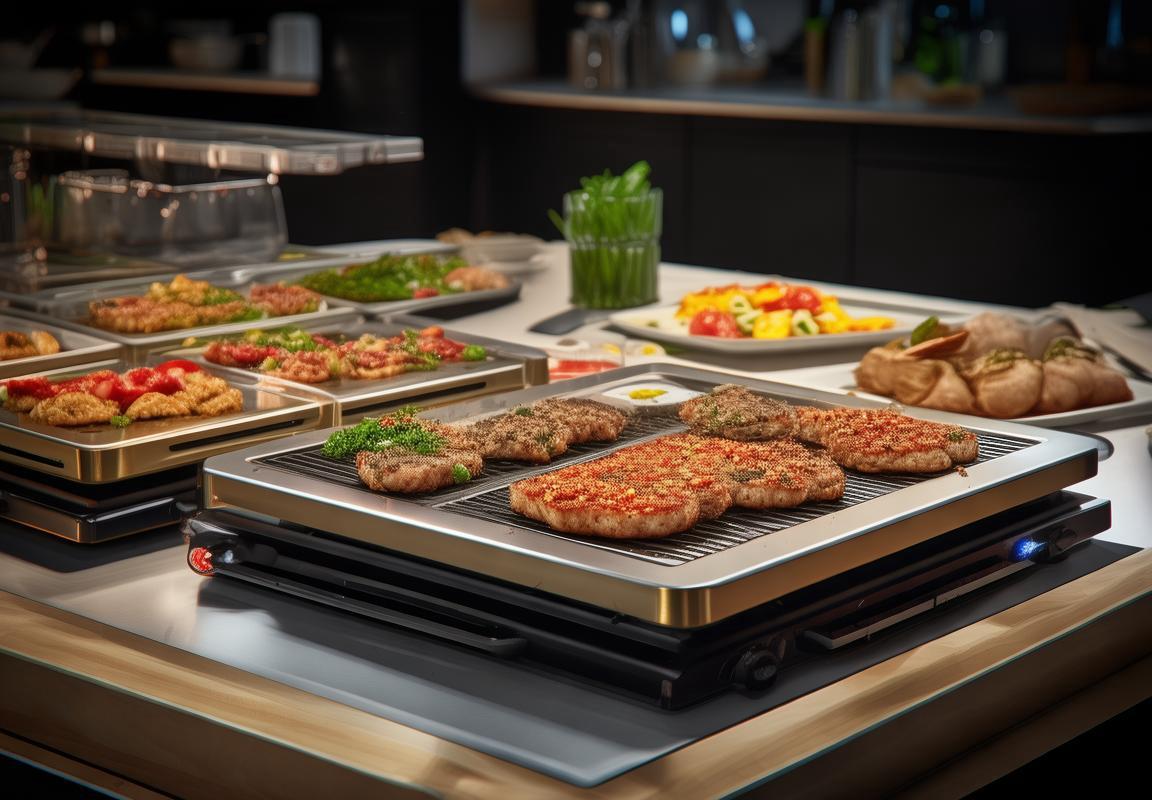
Understanding the Growth Trends of Private Label Contact Grills
The private label contact grill market in Europe and North America has witnessed a surge in popularity, driven by several key trends that are reshaping the landscape. From the rise of health-conscious consumers to the convenience of modern lifestyles, these factors have contributed significantly to the growth trajectory of private label contact grills.
-
Health and Wellness Trends Fueling DemandConsumers in both Europe and North America are increasingly gravitating towards healthier cooking methods that minimize the addition of fats and oils. Contact grills, with their ability to cook food with little to no oil, have become a preferred choice for those looking to maintain a balanced diet. This shift towards health and wellness has propelled the sales of private label contact grills as consumers seek out cost-effective alternatives to more expensive branded options.
-
Convenience and Time-Saving FeaturesIn today’s fast-paced world, convenience is king. Private label contact grills often come with features that cater to busy consumers, such as rapid cooking times and easy-to-use controls. These attributes have made private label grills an attractive option for those who want to enjoy a delicious meal without spending hours in the kitchen. The emphasis on convenience has become a significant growth driver for the private label market.
-
Cost-Effectiveness and Value PropositionPrivate label brands have long been known for offering quality products at a lower cost compared to their branded counterparts. This value proposition is particularly appealing in the contact grill market, where consumers are often looking for affordable alternatives without compromising on performance. The competitive pricing of private label contact grills has made them a go-to choice for budget-conscious shoppers.
-
Expansion of Online Retail PlatformsThe rise of e-commerce has opened up new avenues for private label brands to reach consumers. Online retailers and marketplaces have become significant channels for distributing private label contact grills, offering a wider selection and easy access for customers. This expansion has not only increased the market reach but has also facilitated the growth of private label brands by reducing the need for physical retail space.
-
Diverse Product Offerings and CustomizationPrivate label contact grill manufacturers have been quick to recognize the importance of offering a diverse range of products to cater to different consumer preferences. From compact, countertop models to larger, countertop grills with multiple cooking surfaces, the variety available under private label brands has expanded. Additionally, many private label manufacturers now offer customization options, allowing consumers to choose features and specifications that best suit their needs.
-
Integration of Smart TechnologyAs technology continues to advance, smart features are becoming more prevalent in kitchen appliances. Private label contact grills are no exception, with many models now incorporating smart technology that allows for remote control and monitoring via smartphones. This integration of smart technology not only enhances the user experience but also aligns with the growing trend of smart homes, further boosting the appeal of private label grills.
-
Environmental Sustainability FocusIn recent years, there has been a growing emphasis on sustainability, and private label contact grill brands have been quick to respond. By offering energy-efficient models and emphasizing eco-friendly materials, these brands are tapping into the eco-conscious consumer market. This focus on sustainability has become a key differentiator for private label contact grills, particularly in regions like Europe where environmental concerns are paramount.
-
Retailer Branding and Co-Branding OpportunitiesRetailers have been leveraging their own brands to offer private label contact grills, creating a sense of exclusivity and trust among consumers. Co-branded initiatives with well-known retailers have also gained traction, allowing private label brands to benefit from the retailer’s established customer base and brand recognition. This collaborative approach has been instrumental in expanding the market share for private label contact grills.
-
Market Saturation and CompetitionDespite the growth, the private label contact grill market is becoming increasingly saturated, with more brands vying for consumer attention. This competition has led to a focus on innovation and differentiation, with manufacturers constantly looking to improve their products and offer unique features. The market’s saturation has also spurred some consolidation, with smaller private label brands being acquired by larger companies to enhance their market presence.
-
Future Outlook: Ongoing Innovation and Market ExpansionLooking ahead, the private label contact grill market is expected to continue growing, driven by ongoing innovation and market expansion. As consumer preferences evolve and new technologies emerge, private label brands will need to stay agile and adapt to changing trends. The future of the market will likely see an even greater emphasis on health, convenience, and sustainability, with private label brands leading the charge in offering innovative solutions to meet these demands.
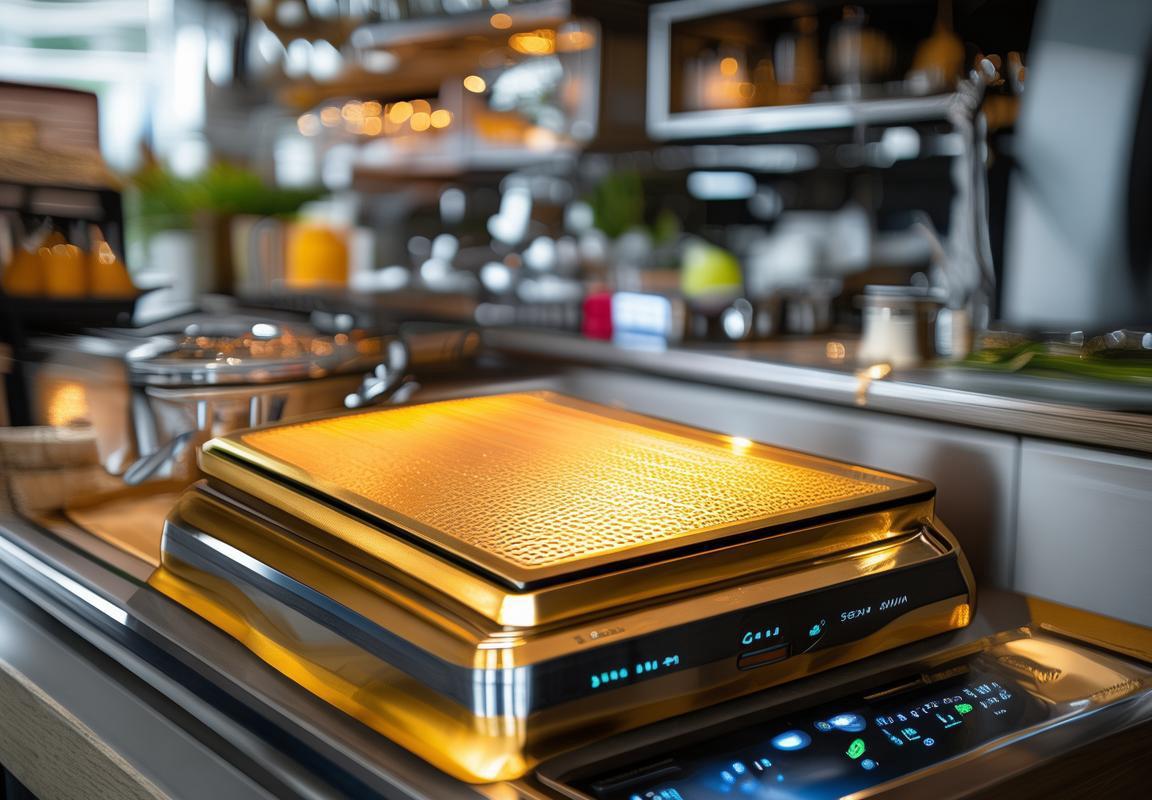
Key Factors Driving the Demand for Private Label Contact Grills
The demand for private label contact grills has been on a steady rise, and several key factors have contributed to this trend. From consumer preferences to market dynamics, here’s a closer look at what’s propelling this segment forward.
-
Cost-Effectiveness: Private label contact grills often offer a more affordable alternative to branded products. With budget-conscious consumers seeking quality without the premium price tag, private labels have become a go-to option for many.
-
Brand Loyalty Shift: As the retail landscape evolves, consumers are showing a preference for private label brands. This shift is partly due to the increasing brand loyalty to supermarkets and department stores, where private label products are prominently featured.
-
Health and Wellness Trends: The growing emphasis on health and wellness has spurred a demand for cooking appliances that offer healthier cooking options. Private label contact grills, with their ability to cook with minimal oil, cater to this trend, making them an attractive choice for health-conscious consumers.
-
Convenience and Versatility: Contact grills are known for their convenience and versatility, allowing users to cook a variety of foods such as steaks, sandwiches, and vegetables. Private label brands often provide a range of models to suit different cooking needs, appealing to a broad consumer base.
-
Marketing and Promotion: Retailers have been successful in marketing private label contact grills through strategic promotions and packaging. By highlighting the benefits of these products, such as easy cleanup and fast cooking times, retailers have been able to create a strong case for private label over branded competitors.
-
Innovation and Technology: Private label brands have been quick to adopt technological advancements in the cooking appliance industry. Features like non-stick surfaces, adjustable heat settings, and programmable cooking modes have been integrated into their contact grills, enhancing their appeal.
-
Retailer’s Brand Equity: Supermarkets and department stores have been leveraging their brand equity to promote private label products. By associating their own brands with quality and reliability, retailers have been able to drive demand for private label contact grills.
-
Market Saturation of Branded Products: The market has become saturated with numerous branded contact grill options, leading some consumers to seek out alternatives. Private label grills offer a fresh choice that can stand out in a crowded market, especially for those looking for something different.
-
Eco-Friendly Consumption: There’s a growing trend towards eco-friendly consumption, and private label contact grills often come with packaging that is more environmentally friendly. This aspect resonates with consumers who are increasingly conscious of their carbon footprint.
-
Expansion into New Markets: As the popularity of contact grills continues to grow, private label brands are expanding into new markets, both domestically and internationally. This expansion is fueling demand as more consumers discover the convenience and quality these products offer.
-
Economic Factors: During economic downturns, consumers may look for more budget-friendly options, which can drive demand for private label contact grills. These products provide a cost-effective solution without compromising on quality.
-
Product Customization: Retailers are offering a degree of product customization through private label brands, allowing consumers to choose from various designs, colors, and features that align with their personal preferences.
These factors collectively contribute to the robust demand for private label contact grills, as consumers seek value, health, convenience, and innovation in their kitchen appliances.
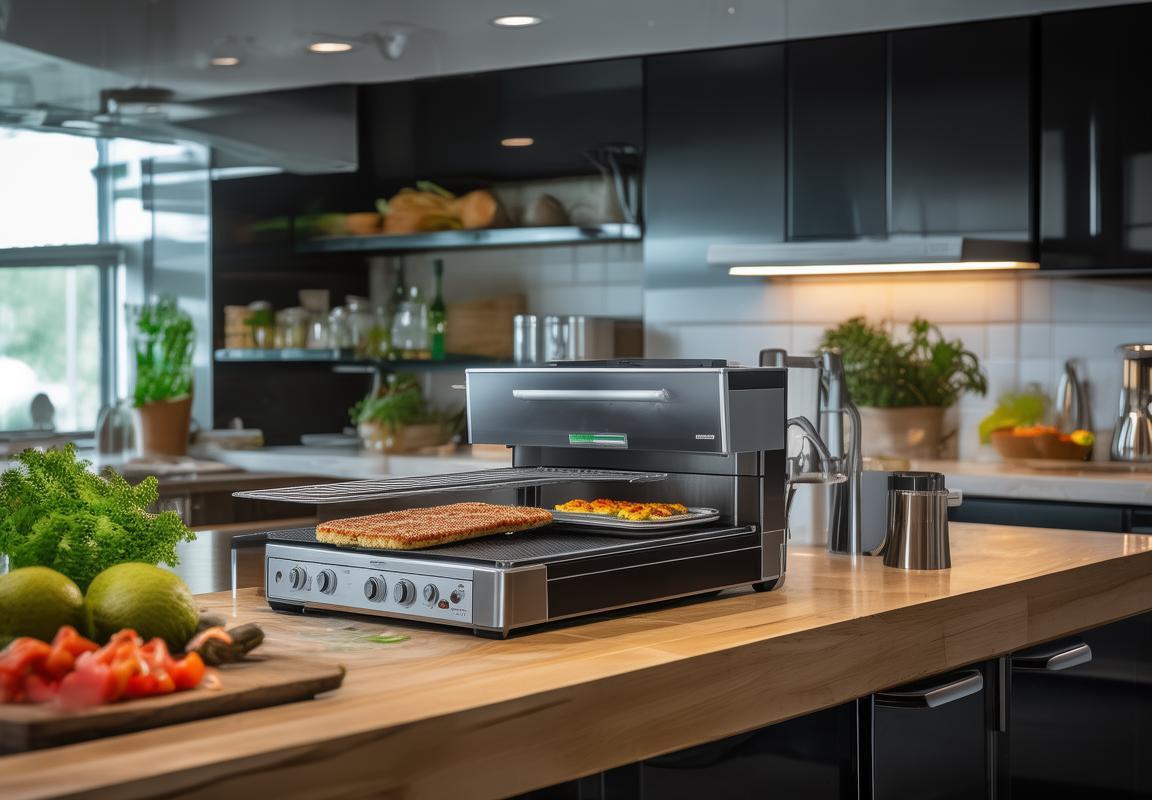
The Role of Distribution Channels in the Private Label Market
In the ever-evolving landscape of the private label market, distribution channels play a pivotal role in reaching consumers and ensuring the success of contact grill brands. Here’s an in-depth look at how these channels shape the market.
Retailers and Online Platforms
Retailers, both physical and online, serve as the primary gateways for private label contact grills to reach customers. Supermarkets, department stores, and specialty appliance shops are key players in distributing these products. Online platforms, including e-commerce giants like Amazon and Alibaba, have expanded the market’s reach, allowing private label brands to tap into a global consumer base without the need for traditional brick-and-mortar stores.
Specialized Distribution Networks
For niche markets or high-end private label contact grills, specialized distribution networks are crucial. These networks include gourmet grocery stores, high-end department stores, and specialty kitchen appliance retailers. These channels cater to consumers who seek quality and uniqueness, often at a premium price point. The strategic placement of private label products within these stores can significantly impact sales and brand perception.
Wholesale and B2B Distribution
Wholesale distribution is a vital aspect of the private label market, particularly for brands looking to enter the commercial sector, such as hotels, restaurants, and catering services. By offering private label contact grills through B2B channels, manufacturers can establish a steady revenue stream and expand their market share in the commercial kitchen equipment market. This distribution model also allows for larger orders and customized packaging, which can be appealing to businesses looking for specific features or branding.
Direct-to-Consumer (DTC) Strategies
Direct-to-consumer strategies have gained traction in the private label market, with brands choosing to sell their products directly to consumers online. This approach eliminates the need for intermediaries and can provide a higher profit margin. DTC channels often include branded websites, social media platforms, and email marketing campaigns. By engaging with customers directly, private label brands can build a loyal following and gather valuable feedback, which can inform future product development.
Collaboration with Distributors and Partners
Many private label contact grill brands rely on partnerships with distributors and third-party logistics providers to manage their distribution channels effectively. These partners can offer expertise in logistics, inventory management, and market insights, helping brands to navigate complex supply chains and market demands. Collaborations with local and international distributors can also enhance the brand’s presence in various regions, especially in emerging markets.
Influence of Digital Marketing
Digital marketing has become an indispensable tool for private label contact grill brands to reach consumers. Through targeted online advertising, search engine optimization (SEO), and content marketing, brands can increase their visibility and drive traffic to their distribution channels. Social media platforms, in particular, are powerful tools for engagement and brand building, as they allow direct interaction with customers and influencers who can promote the products.
Impact of E-commerce Trends
The rise of e-commerce has significantly influenced the distribution channels for private label contact grills. With more consumers turning to online shopping, brands must ensure their products are readily available through various e-commerce platforms. This requires a focus on efficient packaging, shipping, and customer service to meet the expectations of online shoppers. Additionally, the integration of augmented reality (AR) and virtual reality (VR) can enhance the online shopping experience by allowing customers to visualize the product in their own kitchens.
Adaptation to Retail Trends
As the retail landscape continues to change, private label contact grill brands must adapt to new trends. This includes embracing the growth of pop-up shops, which offer a temporary, immersive shopping experience that can create buzz and attract new customers. Additionally, the rise of experiential retail, where customers can interact with products and learn about their features, presents an opportunity for private label brands to showcase their products in a more engaging way.
In conclusion, the role of distribution channels in the private label market is multifaceted. From retail partnerships to e-commerce strategies, each channel offers unique opportunities and challenges for brands looking to thrive in a competitive environment. By understanding the nuances of these channels and leveraging them effectively, private label contact grill brands can reach their target audience and achieve sustainable growth.

Competitive Landscape: Private Label vs. Branded Contact Grills
In the competitive landscape of the contact grill market, the battle between private label and branded products is a fascinating one. Private label brands, often associated with store-specific or generic offerings, are increasingly carving out a niche for themselves. Here’s a closer look at how these two segments are positioning themselves and the dynamics at play.
Private label contact grills are typically characterized by their affordability and convenience. They are often found in discount stores, supermarkets, and department stores, where customers seek value for their money. These products are designed to meet the basic needs of the consumer, focusing on functionality and price rather than innovation or brand recognition. The appeal lies in their straightforward approach, which can be particularly attractive to budget-conscious shoppers.
On the other hand, branded contact grills, which include well-known names in the kitchen appliance industry, are often positioned as premium products. These brands invest heavily in research and development to offer advanced features, sleek designs, and enhanced cooking capabilities. They cater to consumers who are willing to pay a premium for quality, durability, and the assurance of a trusted name.
One key aspect of the competitive landscape is the differentiation strategy employed by both private label and branded manufacturers. Private labels often leverage the perceived value of the store or retailer’s brand, creating a sense of trust and familiarity among customers. This can be particularly effective in stores with a strong reputation for quality and customer service.
Branded manufacturers, however, use their established brand equity to drive sales. They invest in marketing campaigns that highlight the unique selling points of their products, such as superior heat distribution, non-stick surfaces, and easy-to-use controls. These campaigns are designed to create a perception of luxury and innovation, which can be a significant draw for consumers looking for the latest technology and design trends.
Another important factor in the competitive landscape is the distribution channels. Private label products are often distributed through a more direct route, with a focus on efficiency and cost-effectiveness. They are typically found in a single retailer’s stores or online platforms, which can streamline the supply chain and reduce overhead costs.
Branded contact grills, on the other hand, have a broader distribution network, including large department stores, specialty kitchen appliance retailers, online marketplaces, and even direct-to-consumer channels. This wide reach allows branded manufacturers to tap into a diverse customer base and capitalize on their brand’s reputation.
The pricing strategy is also a significant differentiator. Private label contact grills are generally priced lower than their branded counterparts, making them more accessible to a wider market. This can be a powerful tool for retailers looking to attract price-sensitive customers without compromising on quality.
Branded contact grill manufacturers, however, often price their products higher to reflect the perceived value and quality. They may offer various price points within their brand range to cater to different segments of the market, from budget-friendly models to high-end luxury grills.
Customer loyalty plays a crucial role in the competitive landscape as well. Branded manufacturers have the advantage of long-standing customer relationships built on trust and brand loyalty. They can leverage this loyalty to introduce new products and maintain a strong market presence.
Private label brands, on the other hand, must work harder to establish loyalty, often by focusing on customer service and building a positive reputation within the stores they are associated with. This can be challenging but is not impossible, as demonstrated by some successful private label brands that have managed to create a loyal customer base.
In conclusion, the competitive landscape of private label vs. branded contact grills is shaped by a variety of factors, including pricing, distribution channels, marketing strategies, and customer preferences. While private label products offer affordability and convenience, branded grills rely on innovation, quality, and brand recognition to maintain their market share. The success of each segment often hinges on how well they understand and cater to the evolving needs and expectations of consumers.
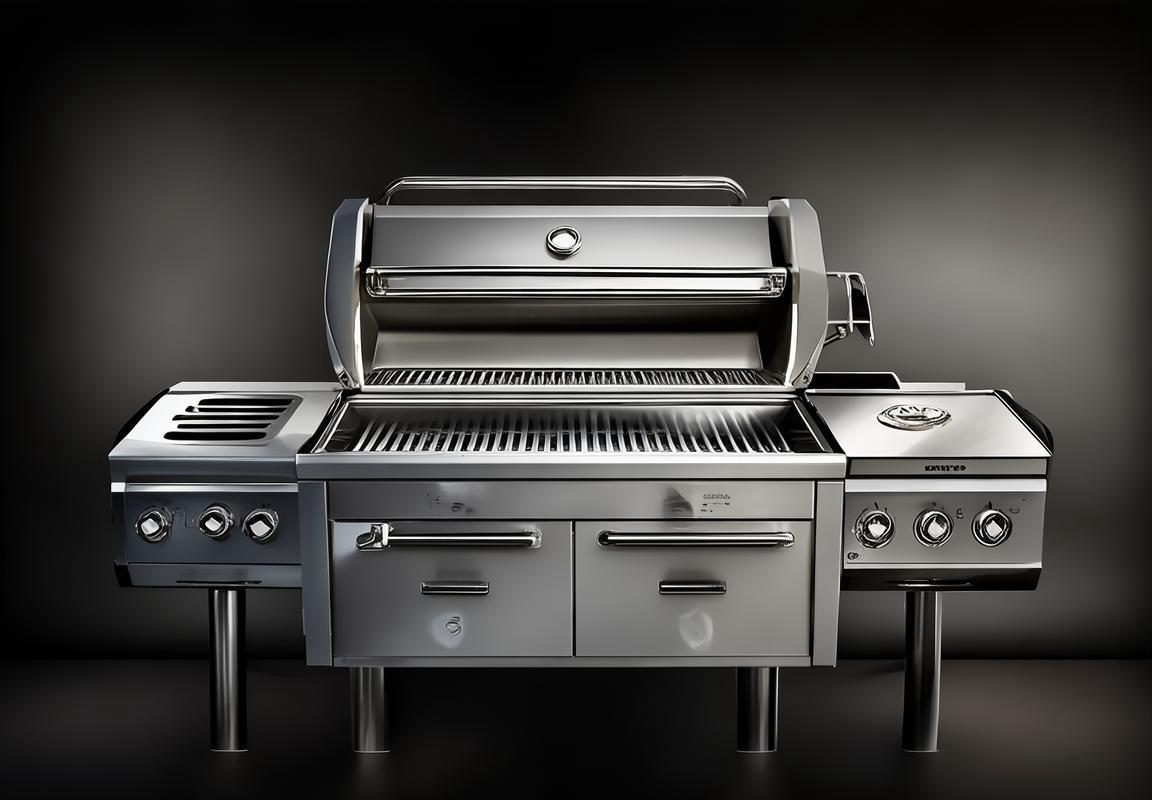
Consumer Preferences and the Impact on Private Label Sales
In the evolving landscape of the kitchen appliance market, consumer preferences play a pivotal role in shaping the success of private label contact grills. These preferences are influenced by a variety of factors, each impacting the way private label sales are conducted and perceived by consumers.
-
Value for Money: Private label products often offer a more budget-friendly alternative to branded competitors. Consumers seeking high-quality appliances without the premium price tag gravitate towards private label contact grills, recognizing the cost savings while still enjoying reliable performance.
-
Brand Trust and Recognition: While private label brands may not carry the same recognition as major household names, they have been making strides in building trust. Consumers who are loyal to a particular retailer or store brand are more likely to opt for private label contact grills, confident in the quality assurance provided by their preferred shopping destination.
-
Design and Functionality: The design and functionality of contact grills have become increasingly important in consumer choices. Modern consumers are looking for appliances that not only look sleek and modern but also offer innovative features like adjustable temperature controls, non-stick surfaces, and easy-to-clean designs. Private label brands that cater to these preferences are seeing a boost in sales.
-
Health and Wellness Trends: As health and wellness become more of a focus for consumers, the demand for appliances that promote healthier cooking methods has surged. Private label contact grills that emphasize low-fat and low-calorie cooking options are appealing to health-conscious shoppers, driving sales in this segment.
-
Sustainability and Environmental Concerns: There’s a growing movement towards sustainable and eco-friendly products. Consumers who prioritize reducing their carbon footprint are more likely to purchase private label contact grills that are energy-efficient or made from sustainable materials, contributing to the rise in private label sales.
-
Social Media and Online Reviews: The impact of social media and online reviews cannot be overstated. Consumers are more likely to trust recommendations from peers and influencers. Private label brands that effectively leverage social media to showcase their products and encourage positive reviews can significantly influence consumer purchasing decisions.
-
Retailer Loyalty Programs: Many retailers have loyalty programs that offer points or discounts for purchases. Consumers who are members of these programs may be more inclined to buy private label contact grills to accumulate rewards, further boosting sales for these products.
-
Versatility and: Consumers are looking for appliances that can handle a variety of cooking tasks. Contact grills that can sear, grill, and even serve as a sandwich maker are more likely to attract buyers. Private label brands that offer versatile appliances are capitalizing on this trend.
-
Cultural and Regional Preferences: Different regions have varying tastes and preferences. Private label brands that understand and cater to these cultural nuances can see higher sales in specific markets. For example, certain models may be more popular in areas where outdoor cooking is a staple.
-
Packaging and Presentation: The way a product is presented can make a significant difference in consumer perception. Private label brands that invest in attractive packaging and clear, informative labeling are more likely to catch the eye of shoppers, influencing their decision to purchase.
-
Economic Factors: Economic conditions can greatly affect consumer spending habits. During economic downturns, value-driven consumers may turn to private label products to save money, leading to increased sales of private label contact grills.
-
Seasonal Trends: Seasonal demand can also play a role in private label sales. For instance, contact grills may see a surge in sales during summer months when outdoor cooking is more prevalent.
The interplay of these consumer preferences creates a dynamic environment for private label contact grill sales. By understanding and adapting to these trends, private label brands can position themselves as a compelling option for consumers looking for quality appliances at a more accessible price point.

Technological Advancements and Innovation in Private Label Contact Grills
The landscape of private label contact grills has been rapidly evolving with the integration of cutting-edge technologies and innovative design elements. From smart features to eco-friendly materials, here’s how technology is shaping the future of these appliances.
Grill Technology IntegrationModern private label contact grills are not just cooking devices; they are technological marvels. With the inclusion of digital temperature controls, these grills allow users to achieve precise cooking temperatures, ensuring that food is cooked to perfection every time. The integration of Bluetooth connectivity means that users can control their grills remotely, adjusting settings via smartphones or tablets.
Smart Sensors and Automated CookingPrivate label brands are increasingly incorporating smart sensors that monitor internal temperatures, humidity levels, and cooking times. These sensors can automatically adjust the heat to maintain optimal cooking conditions, reducing the need for constant monitoring. Such innovations make private label contact grills user-friendly and accessible to those who may not have extensive grilling experience.
Eco-Friendly MaterialsThe shift towards sustainability is evident in the materials used in private label contact grills. Brands are now using non-toxic coatings and eco-friendly materials that are free from harmful chemicals like PFOA and PTFE. These advancements not only promote health but also appeal to environmentally conscious consumers who prefer products that are kind to the planet.
Programmable Cooking ModesPrivate label contact grills are now equipped with programmable cooking modes that cater to a variety of recipes and dietary preferences. Whether it’s grilling, searing, or cooking delicate fish, these modes provide users with the flexibility to achieve the desired outcome without altering the grill’s construction or design.
Enhanced Safety FeaturesSafety is a paramount concern in kitchen appliances, and private label contact grills are no exception. Features like cool-touch handles, safety locks, and automatic shut-off mechanisms have become standard. These enhancements not only protect users from burns and accidents but also add a layer of trust to the private label brand.
Augmented Reality (AR) and Virtual CookingPrivate label brands are exploring augmented reality to enhance the cooking experience. Through AR, users can visualize cooking techniques and see the potential outcomes of their grilling endeavors before they start. This technology not only educates but also makes the grilling process more engaging and interactive.
Energy EfficiencyEnergy efficiency is a key selling point for many consumers, and private label contact grills are stepping up to meet this demand. With improved heat retention and energy-saving features, these grills consume less power while still delivering exceptional cooking performance. This not only reduces utility bills but also contributes to a greener footprint.
Customizable and Modular DesignsPrivate label contact grills are now offering customizable and modular designs, allowing consumers to choose components that best suit their needs. From different grill plates to additional accessories, these grills can be tailored to meet specific cooking styles and preferences. This level of personalization is becoming a significant factor in the market’s growth.
Interactive User InterfacesThe user interface of private label contact grills has seen significant improvements. With intuitive interfaces and clear displays, users can easily navigate through various cooking settings and functions. Some models even offer voice-activated controls, making the cooking experience more hands-free and convenient.
Collaboration with Chefs and InfluencersTo stay ahead in the market, private label brands are collaborating with chefs and influencers to develop unique recipes and cooking techniques that can be achieved with their contact grills. This not only provides consumers with inspiration but also helps to establish the brand as a leader in culinary innovation.
In conclusion, the technological advancements and innovations in private label contact grills are reshaping the market. By focusing on user convenience, safety, sustainability, and culinary excellence, these brands are not only meeting consumer demands but also setting new standards in the industry.
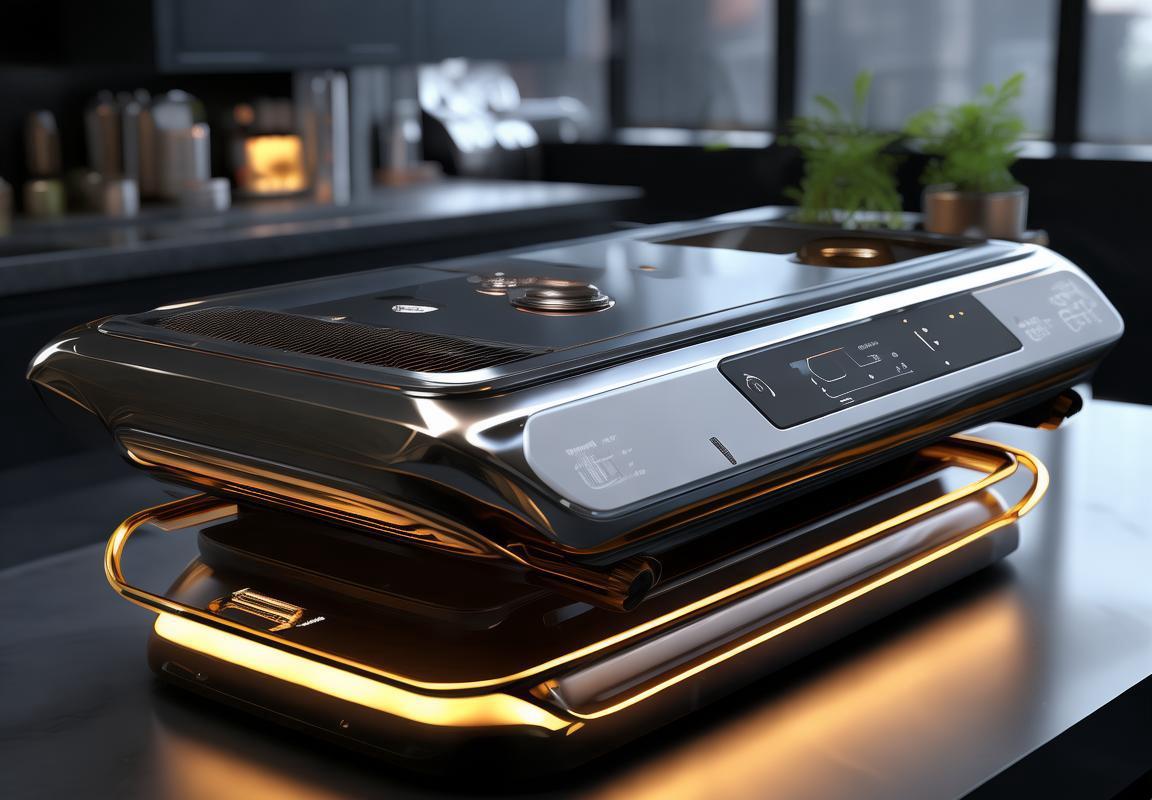
Challenges and Opportunities for Private Label Manufacturers
Understanding the dynamics of the private label market requires a keen eye on the challenges and opportunities that manufacturers face. Here’s a breakdown of some of the key challenges and opportunities that have emerged:
Private label manufacturers often grapple with the challenge of maintaining a consistent product quality that meets consumer expectations. Ensuring that each batch of products meets the same high standards as the last can be a delicate balance. Yet, the opportunity here lies in building a reputation for reliability and trust, which can be a significant differentiator in a crowded market.
Navigating the complexities of supply chains is another common challenge. Private label brands typically rely on a network of suppliers to deliver raw materials and components. Fluctuations in global markets, trade disputes, and logistical hurdles can disrupt these chains, leading to delays and increased costs. However, by diversifying suppliers and developing robust contingency plans, manufacturers can turn this into an opportunity to enhance supply chain resilience.
The need for product innovation is a driving force behind many of the challenges faced by private label manufacturers. Staying competitive requires constant improvement and introduction of new features or designs. While this can be costly and time-consuming, it also presents an opportunity to capture market share from brands that may be slower to innovate.
Marketing and brand building can be particularly challenging for private label manufacturers, as they often operate in a market where brand recognition is lower than that of established brands. However, this challenge can be turned into an opportunity by focusing on niche markets or specific customer segments that may be underserved by major brands.
Cost control is a critical aspect of private label manufacturing. With tight profit margins, manufacturers must find ways to reduce costs without compromising quality. This can be achieved through efficient production processes, economies of scale, and strategic sourcing. The opportunity here is to create a cost-effective product that still offers premium features, making it an attractive option for budget-conscious consumers.
Regulatory compliance is another challenge that private label manufacturers must navigate. They must stay up-to-date with changing laws and regulations, especially in areas like safety standards and environmental compliance. While this requires a significant investment in legal expertise and resources, it also opens up opportunities to appeal to consumers who are increasingly concerned about sustainability and ethical manufacturing practices.
Consumer trends can be both a challenge and an opportunity for private label manufacturers. Adapting to trends such as health and wellness, smart technology integration, and eco-friendly materials can help manufacturers meet consumer demands. However, failing to adapt quickly enough can lead to lost sales and market share.
The challenge of counterfeit products is also a significant concern for private label manufacturers. Counterfeiting can damage a brand’s reputation and lead to lost sales. On the flip side, the opportunity lies in creating genuine products that offer value and differentiation, making it less likely for consumers to seek out counterfeit alternatives.
Lastly, the rise of e-commerce has brought both challenges and opportunities. While it offers a vast new market, it also means manufacturers must compete with a wide range of online sellers. The opportunity here is to leverage the digital space for targeted marketing and to create a direct relationship with consumers, bypassing traditional distribution channels.
In conclusion, while private label manufacturers face a host of challenges, these challenges often come with substantial opportunities. By focusing on quality, innovation, cost-effectiveness, and responsiveness to market trends, manufacturers can turn these challenges into a springboard for growth and success.

Case Studies: Successful Private Label Contact Grill Brands
In the realm of private label contact grill brands, several success stories have emerged, showcasing the potential for innovation and market penetration. Let’s delve into a few case studies that highlight the strategies and triumphs of these brands.
One such brand is “GrillGuru,” a private label contact grill that has gained significant traction in the European market. Their success can be attributed to a combination of factors, including a focus on health-conscious consumers and a commitment to sustainability. By offering a range of eco-friendly grills made from recycled materials, GrillGuru has captured the attention of environmentally conscious shoppers.
Another standout private label contact grill brand is “Sizzle Supreme,” which has managed to carve out a niche in the North American market. Their strategy revolves around offering a variety of grill models that cater to different cooking preferences and lifestyles. From compact grills for small apartments to larger, family-sized models, Sizzle Supreme has become a go-to brand for consumers seeking convenience and versatility.
“GrillEase” is another private label brand that has made waves with its unique approach to contact grilling. Recognizing the importance of ease of use and maintenance, GrillEase has developed a range of contact grills with intuitive controls and easy-to-clean surfaces. This focus on user-friendliness has helped the brand build a loyal customer base, particularly among busy professionals and families.
“GrillMaster” has also found success in the private label market by specializing in high-quality, durable contact grills. Their products are designed with the professional chef in mind, offering features like adjustable heat settings and precise temperature control. This has allowed GrillMaster to tap into the commercial market, where their grills are now used in restaurants and catering services across the globe.
In the UK, “GrillEssence” has managed to distinguish itself through its emphasis on flavor and aroma preservation. By using advanced technology to lock in the natural juices of meats, this private label brand has become a favorite among food enthusiasts who appreciate the authentic taste of grilled dishes.
The success of these private label contact grill brands can be attributed to several key factors. One is the ability to adapt to consumer trends. As health and wellness continue to be top priorities for many consumers, these brands have focused on offering products that align with these values. Additionally, by providing a variety of options, they cater to diverse preferences and lifestyles.
Another factor is the emphasis on innovation. From incorporating smart technology to streamline cooking processes to creating grills with unique features like digital timers and temperature indicators, these brands have managed to stand out in a crowded market. Their commitment to innovation not only enhances the user experience but also justifies premium pricing.
Furthermore, these brands have recognized the importance of building a strong brand identity. Through effective marketing and promotional strategies, they have created a sense of trust and loyalty among consumers. This has been particularly effective in the private label market, where brand recognition can be a significant differentiator.
Lastly, partnerships with retailers have played a crucial role in the success of these private label contact grill brands. By ensuring their products are prominently displayed and well-positioned on shelves, these brands have maximized their visibility and appeal to customers.
In conclusion, the case studies of successful private label contact grill brands like GrillGuru, Sizzle Supreme, GrillEase, GrillMaster, and GrillEssence demonstrate the power of innovation, adaptability, and strong branding in the market. As the demand for high-quality, convenient cooking appliances continues to grow, these brands have shown that there is ample opportunity for private label manufacturers to thrive and make their mark.
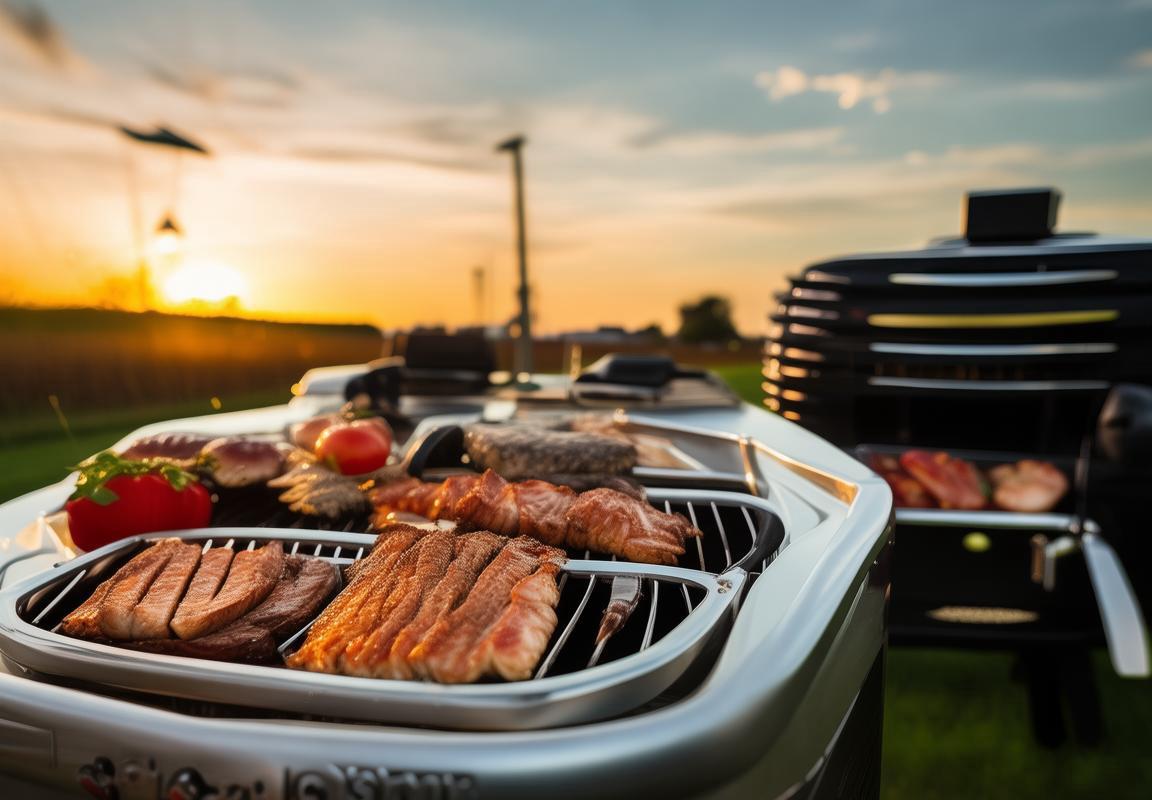
Future Outlook and Predictions for the Private Label Contact Grill Market
The private label contact grill market has seen a surge in popularity, driven by several factors that are reshaping consumer preferences and the competitive landscape. Here’s a closer look at the technological advancements and innovations that are propelling this segment forward.
In recent years, there has been a noticeable shift towards smart appliances in the kitchen, and contact grills are no exception. Innovations such as Bluetooth connectivity, which allow users to control the grill remotely through a smartphone app, have become increasingly common. This not only enhances convenience but also provides users with the ability to monitor cooking temperatures and times from anywhere.
Another significant technological development is the integration of smart sensors within contact grills. These sensors can adjust heat settings automatically to ensure consistent cooking results, reducing the guesswork involved in grilling. Such innovations cater to the consumer’s desire for efficiency and precision, which are key selling points in the private label market.
The rise of eco-friendly and sustainable products has also influenced the development of private label contact grills. Manufacturers are now focusing on using recycled materials and energy-efficient designs to appeal to environmentally conscious consumers. This trend has led to the introduction of grills that are not only functional but also eco-friendly, broadening the appeal of private label brands.
Safety features have also been a focal point for innovation. Contact grills with non-stick coatings that are free from harmful chemicals like PFOA have gained traction. Additionally, the inclusion of safety locks and child-resistant features has made these grills more appealing to families, a demographic that often drives private label sales.
The market has also seen a surge in the creation of multifunctional contact grills. Brands are now offering models that can serve as both grills and smokers, or even as sandwich makers. These versatile appliances cater to the diverse needs of consumers who are looking for a single kitchen tool that can handle multiple tasks.
Moreover, the integration of cooking guides and recipes within the grills themselves is becoming more prevalent. With digital displays that can show cooking times and temperatures, private label brands are making it easier for consumers to achieve perfect grill marks and flavors every time.
Despite these advancements, there are still challenges that private label manufacturers must overcome. Ensuring that these innovative features do not compromise the quality and durability of the product is crucial. Consumers are willing to pay a premium for technology, but they also expect their appliances to last.
The competitive landscape between private label and branded contact grills is heating up. Private labels often offer a more affordable alternative to branded products, which can be attractive to budget-conscious consumers. However, branded grills often have the advantage of established brand loyalty and a reputation for quality that can be difficult for private labels to match.
Private label brands are also competing with the growing popularity of online marketplaces. These platforms provide a convenient way for consumers to purchase contact grills without leaving their homes, and they often offer a wide variety of options, including both private label and branded products.
Despite these challenges, there are significant opportunities for private label manufacturers. The rise of health-conscious consumers has led to an increased demand for high-quality, healthy cooking options, and private label brands can capitalize on this trend by offering innovative, healthy cooking appliances. Additionally, the growing trend of meal prepping and home dining has created a market for durable, reliable kitchen appliances, which private labels can supply.
In conclusion, the private label contact grill market is experiencing a renaissance driven by technological advancements and consumer demands. By focusing on innovation, safety, and versatility, private label brands can carve out a niche in a competitive market. The key will be to balance these advancements with affordability and quality, ensuring that private label contact grills remain an attractive option for budget-conscious consumers seeking top-notch cooking performance.